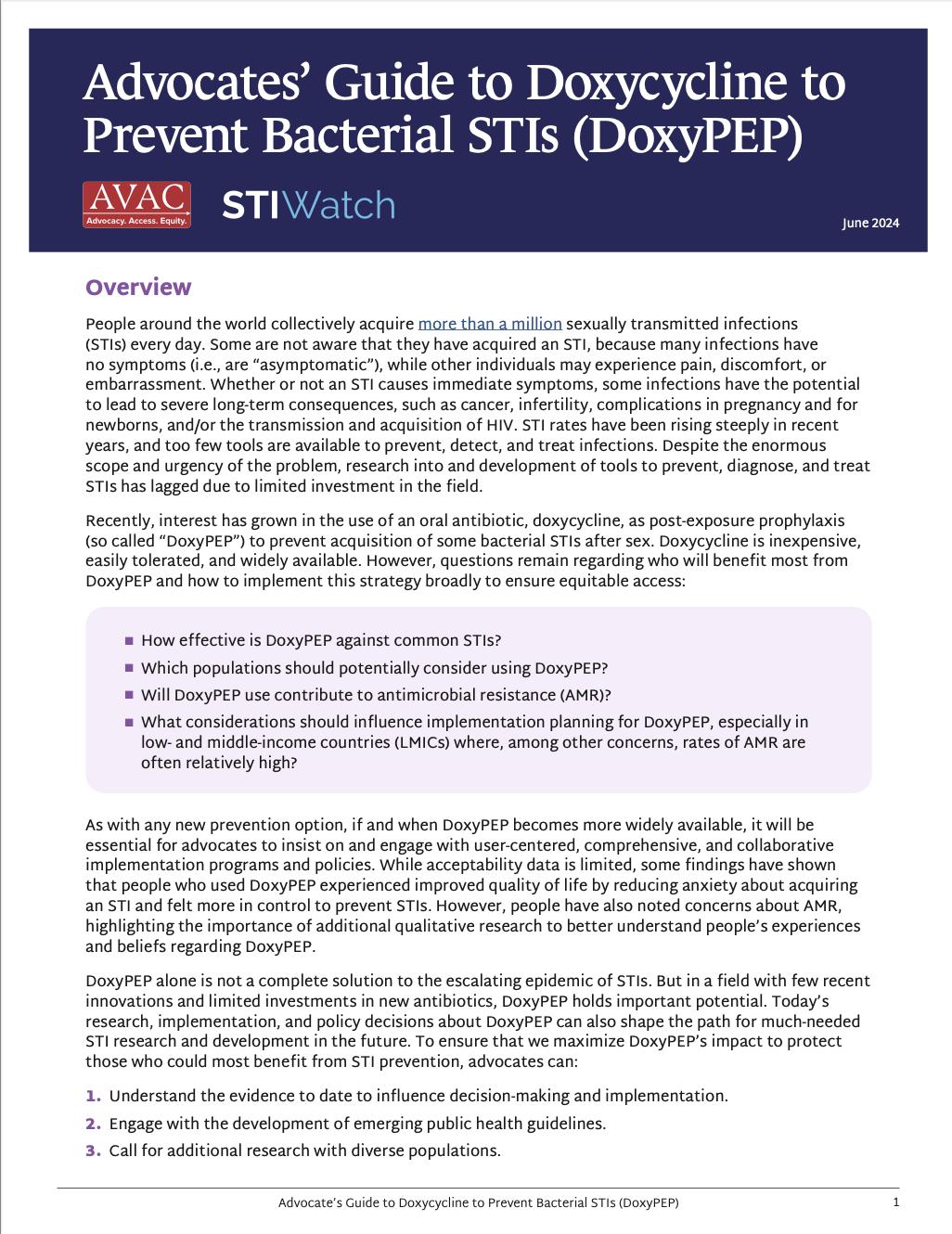Prevention
STIs and HIV are commonly linked and impact similar priority populations including young people, gay, bisexual, and other men who have sex with men, transgender people, and those living with HIV. There is great need to better prevent, detect, and treat STIs as having an STI can make it easier to acquire HIV. Advocacy to accelerate the development and equitable implementation of new STI vaccines, diagnostics, and other prevention options are urgently needed.
Vaccines & Diagnostics
Vaccines could greatly reduce STIs, but progress has slowed due to insufficient funding. And STIs often go unnoticed, so faster diagnostics are essential. Click each link to find out more.
DoxyPEP
Researchers continue to explore prevention strategies like vaccines and preexposure prophylaxis (PrEP) to prevent STIs, but greater research and development investment is needed. Recent clinical trials suggest that use of the oral antibiotic doxycycline, among gay, bisexual, and other MSM, can reduce STIs when taken after condomless sex (doxyPEP). But little data is available on doxyPEP among women, and research to fill this gap is essential.
To discuss this further, AVAC recently held a webinar with experts in the field focusing on the latest scientific insights on DoxyPEP, its effectiveness in preventing STIs, and considerations around antimicrobial resistance.
DoxyPEP: Prevention, effectiveness, and AMR
This webinar focused on sharing the latest scientific insights on DoxyPEP, its effectiveness in preventing STIs, and considerations around AMR. Speakers included: Fabian Kong, Annie Luetkemeyer, and Connie Celum

Advocates’ Guide to DoxyPEP
Doxycycline is inexpensive, easily tolerated, and widely available. However, questions remain regarding who will benefit most from DoxyPEP and how to implement this strategy broadly to ensure equitable access. This guide seeks to explore and address these critical questions.